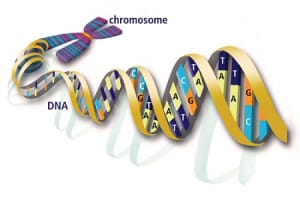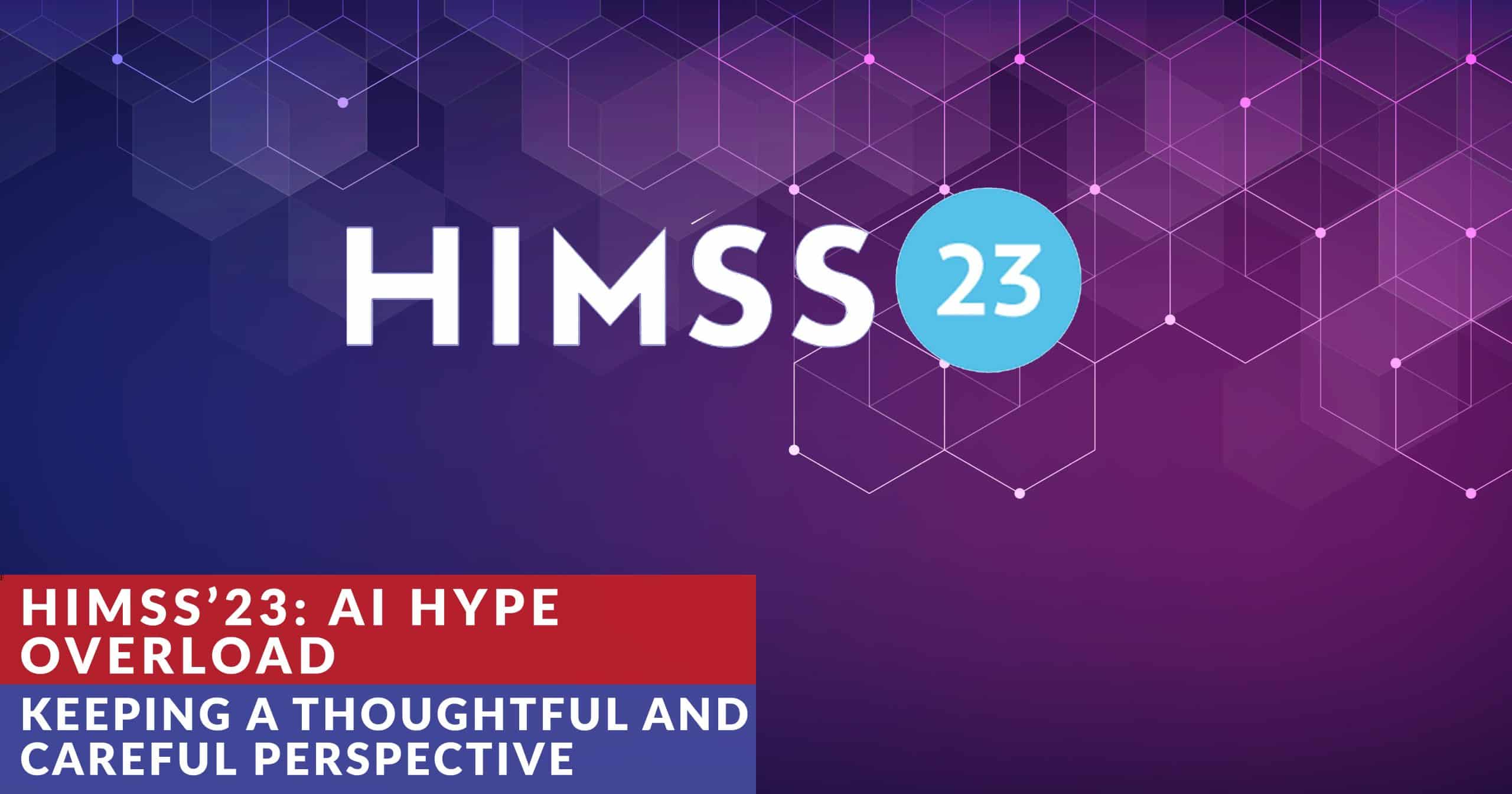
Dr. Eric Topol of Scripps will lead the research project. Navigenics provides the test kits and initial assessment (basically, you get a year subscription to Navigenics’s service, normally $2500. for a BIG discount). Affymetrix provides Navigenics with DNA tools to perform the analysis and all participants will receive a HealthVault account to store the information in a personal health data repository. Scripps is hoping to recruit 10,000 participants.
In late October I received an invitation to participate as a “friend of Scripps” in this research study. After much hemming and hawing, I decide to register to participate in Late November. My justification for registering was to use myself as a Guinea pig to report on, via posts here, what it is like to go through a genetic test process, the impact, or lack thereof of receiving the results and might the results be useful, if at all, once they are in a HealthVault account. For my price of admission, I’ll get a one year subscription to the Navigenics service,testing for disposition to at least 23 diseases (more may be added over course of year) but without the usual counseling service.
Why the initial reluctance to participate? That reluctance stems from the simple fact that genetic testing is still very much in its infancy.
Today, there are a substantial number of genetic researchers that find such services as Navigenics, 23andMe, deCODEme as a load of hogwash. In speaking with one of these detractors, Dr. Rudolf Tanzi of Harvard and MGH who also happens to be the co-founder of two of the four genes that have been conclusively identified to late onset Alzheimer’s and author of “Decoding Darkness: The Search for the Genetic Causes of Alzheimer’s Disease.” Obviously, no slouch when it comes to the topic of genetics.
Tanzi’s biggest gripe is based on a simple premise: How can a company (such as Navigenics) even begin to give a consumer a relative ranking on predisposition to a disease when there is so little evidence? For example, in his area of study researchers have identified some 350 candidate genes that may influence contracting late onset Alzheimer’s. Researchers know very little about any of these genes today and even more importantly, have virtually no understanding of the interaction between various genes and in particular genes that may be present which offset more lethal genes.
Navigenics thinks they have developed a statistically valid approach to get around this problem, First, they only test for those diseases where they believe the research is comprehensive enough “meets their review standards” to test for specific genes (note: Alzheimer’s is in that list, something that Tanzi thinks is absolutely nuts) and secondly, they combine the genetic test results with what information a customer provides via an in-depth online questionnaire on health and family history.
Getting back to me, the genetic testing Guinea pig and the process so far…
In signing up for the test, I had to review and agree to the Terms and Conditions and Informed Consent (some 21pgs in all) for the research project. The documents had all the usual disclaimers, legalese, assurances that privacy will be paramount (though Navigenics had a loophole stating that by agreeing, you can not sue them if they inadvertently release your data – gee thanks) and more than a few warnings to be careful as results may effect one’s emotions.
After this sign-off, next was the HRA (health risk assessment). This was a very comprehensive HRA with many questions beyond my ability to answer, e.g., health and susceptibility of various distant relatives to all sorts of specific diseases. Took a good 30-40 minutes to answer all the questions – this sucker was LONG. Honestly, after answering the questions, one could put a consumer into a pretty tight box as to what they may or may not need to watch out for in the future. It may well be here that Navigenics draws the vast majority of data/information in performing an assessment with the genetic test more of a gee whiz, ain’t that cool type of thing.
Couple of weeks later, received a nondescript little white box. Inside was the saliva collection kit and packaging to mail kit back. Went through the process and last week, received an email from Navigenics stating that the sample was at the lab undergoing analysis. Results are guarnateed to be available no later than April.
Looking ahead, Scripps will be requesting that I take another HRA at 3 months and 12 months after receiving the results to determine if there has been any behavioral changes made as a result of new knowledge of genetic dispositions. After that, Scripps may contact me sporadically over the next 20 years to see if there have been any other behavioral changes.
What I’ll be particularly interested in, and will post on in the future are the following:
- Does knowledge of predispositions to diseases affect my behavior? Right now, I’m on the fence in this regard and really do not have a clear picture as to how I might respond.
- Will there indeed be any emotional repsonse to receiving the tests results? I already know that being fair skinned, the sun is no friend on mine, but what about things I may not know?
- How is this information communicated and in particular, what will actually show-up in the HealthVault account? Will that data/information transmitted to my HealthVault account be useful (leverage) in the use of other health apps, e.g., TrialX for clinical trials?
- More broadly, what does the research at Scripps show? Is there any correlation between knowledge of health risk(s) and behavioral changes?
It will be an interesting journey over the next 12 months or so and I promise to keep you posted.




John, welcome to the club! I sent in my sample a few weeks ago and am looking forward (with some trepidation) to seeing the results as well.
To your question about storage in HealthVault, the data coming from Navigenics will be stored in the “Genetic SNP Result” type (documented here: http://developer.healthvault.com/types/type.aspx?id=9d006053-116c-43cc-9554-e0cda43558cb).
This type was created in concert with Navigenics as well as other companies and individuals in the genetics space. It is a very granular type that contains each SNP, coded against the NCBI dbSNP database (http://www.ncbi.nlm.nih.gov/projects/SNP/). We chose to code at this very detailed level so that as the science matures, users can get more and more value out of their information.
Folks like TrialX currently look at simple data elements such as active conditions rather than these granular SNPs, because that is what is likely to be present in a record today. However — the genome is exactly where you can expect them to go next. This is why having a longitudinal record is so awesome … TrialX and others can just get better and better over time, as our records become more complete and science keeps marching forward.
2009 is going to be a fun year…
Hey Sean, good to hear from you and thanks for welcoming me to this club of guinea pigs. At least I now know I am in good company.
Thanks for the quick feedback on the data type from Navigenics that will drop into HealthVault. I had a real fear that it would be something far more simplistic than what you have done, which is my ideal scenario. Good work!
And yes, in the future this type of data will form the foundation of truly personalized medicine (hmm, another post topic). Having seen a recent study that stated up to 50% of all drugs are ineffective due to genetic variances in the population, genetic data such as this may be the only true solution to the problem. Wonder if anyone has looked into cost savings there?
That may indeed prove far more beneficial long-term to the individual, than knowledge of predispositions.
Did talk to TrialX last week. Yes, they are using extremely fundamental data types, but according to them, that is all that most PIs need today. Probably true.
John,
Your perspective should be very interesting, and we look forward to hearing it.
As an independent check about anything you hear from any one company, you might also benefit from using the (free) resources known as SNPedia and Promethease.
The key tool is Promethease: anyone with access to their own genomic data can use it to create a personal “report card” correlating their own DNA data to what’s reported in SNPedia. While a company may choose to interpret a set of findings a certain way, SNPedia strives to collect all the interpretations, and you (potentially with your healthcare providers) can make an independent assessment.
URLs for SNPedia and Promethease are:
SNPedia: http://www.SNPedia.com/
Promethease: http://www.Promethease.com/
It should be very interesting to follow your perspective over time – especially as full genome sequence becomes as available as SNP chip data is today.
John/Sean,
We are doing a phased development in the use of the data types for determining personalized clinical trial matches. Our current focus is to make it very easy for patients to use basic clinical data from their health records for finding matching clinical trials. However, we have the ability to match on richer data types like meds, labs and procedures. As regards the PIs, they would surely like to see more data elements, but the current data types we match on act as good screeners.
In terms of genetic information, we think that technically it may actually be easier to match on this information because possible values for a SNP or gene will be few and structured (present, absent, etc). The real problem is that few clinical trials (here is a trial that is looking for SNP differences in people with DMD and its affect on their disease progression and response to steroids).currently have eligibility criteria that are based on genetic information, particularly at the SNP level.
But again, this is likely to change fast and that is an exciting development that we are looking forward to.
Are there any alternatives to promethease? Any databases that can be used online or downloadable data sets to use in similar annotations as promethease?